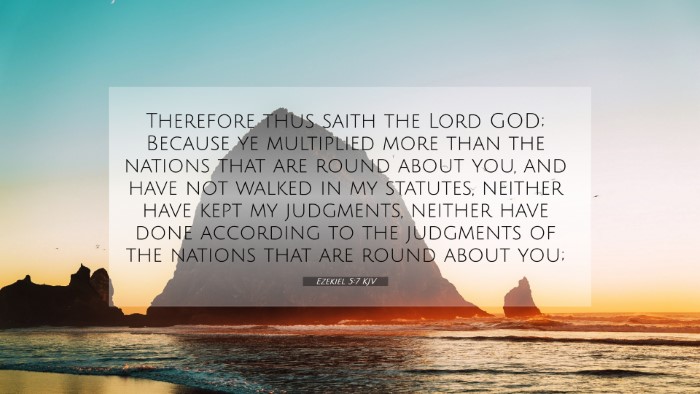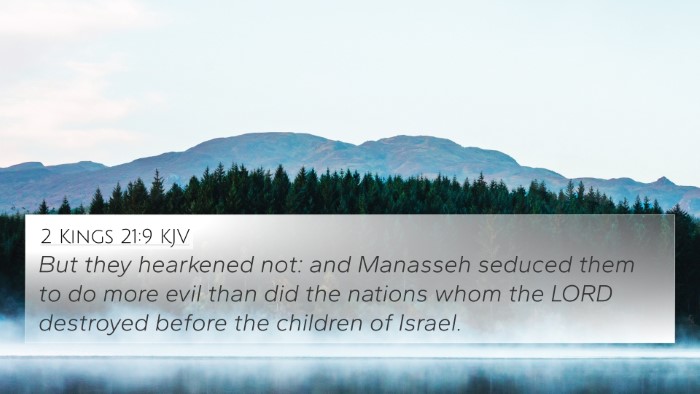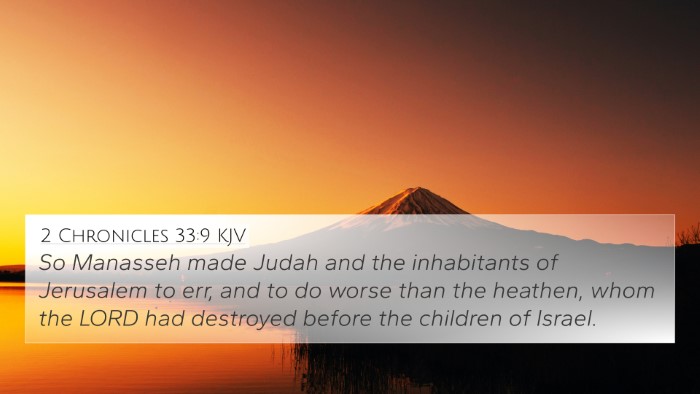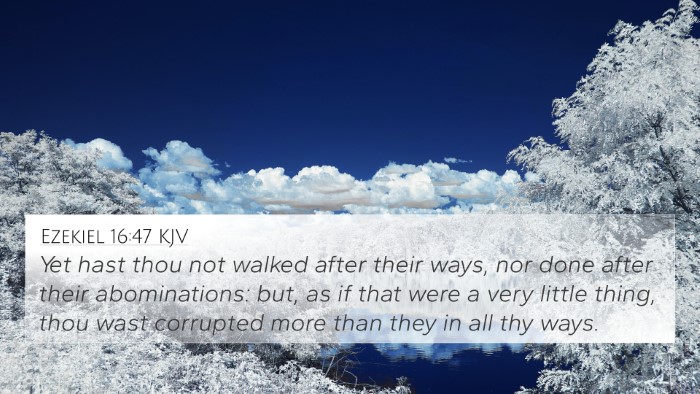Ezekiel 5:7 - Summary and Interpretation
Ezekiel 5:7 states: "Therefore thus says the Lord God: Because you have more turmoil than the nations around you and have not walked in My statutes or kept My judgments, nor even done according to the judgments of the nations around you." This profound verse exhibits both a warning and a lamentation over Israel's disobedience and the ensuing consequences.
Contextual Background
The verse takes place during a time of judgment against Jerusalem and its inhabitants as communicated through the prophet Ezekiel. The chapter primarily emphasizes the failure of Israel to adhere to God’s commandments, leading to their judgment.
Insights from Commentaries
-
Matthew Henry:
This commentary elaborates on how God contrasts Israel's actions with those of surrounding nations, indicating a greater expectation due to their covenant relationship. The Lord's disappointment stems from their choice to abandon His ways.
-
Albert Barnes:
Barnes emphasizes God's call for Israel to recognize their unique position and responsibilities. The Israelites had much insight from prior revelations yet chose to forsake them, highlighting a serious breach of covenant.
-
Adam Clarke:
Clarke points out the significance of God's judgments here, suggesting that Israel's moral and spiritual decline drew them closer to the fate of the nations, making them culpable before God. Their actions called for retribution not dissimilar to that faced by their pagan neighbors.
Themes Present in Ezekiel 5:7
- Covenantal Responsibility: The notion that Israel is accountable for upholding God's commandments.
- Judgment and Consequence: The inevitability of divine judgment as a consequence of rebellion.
- Comparative Morality: An analysis of moral failings in both Israel and surrounding nations evokes a sense of urgency for repentance.
- God’s Expectations: Reflecting on how God's expectations differ for His chosen people versus other nations.
Cross References for Ezekiel 5:7
- Leviticus 18:30 - "Therefore you shall keep My ordinances, so that you do not commit any of these abominable customs..."
- Ezekiel 22:26 - "Her priests have done violence to My law and have profaned My holy things." - A similar indictment against corrupt leadership.
- Jeremiah 7:30-31 - "For the children of Judah have done evil in My sight..." - Another expression of God's sadness over Jerusalem's disobedience.
- Amos 3:2 - "You only have I known of all the families of the earth; therefore I will punish you for all your iniquities." - A declaration of special status and accountability.
- Isaiah 5:4 - "What more could have been done to My vineyard that I have not done in it?" - Reflecting on God’s frustration with unfruitfulness.
- Romans 2:21-24 - "You who teach another, do you not teach yourself?" - A New Testament reflection on hypocrisy and moral responsibility.
- Hebrews 10:29 - "Of how much worse punishment, do you suppose, will he be thought worthy..." - A statement on the seriousness of turning away from God after receiving knowledge.
Conclusion
Ezekiel 5:7 serves as a poignant reminder of the dangers of disobedience and the gravity of straying from God's statutes. It elucidates the expected conduct from a people chosen by God and exemplifies how their choices have profound repercussions, not just for themselves but also for their standing before God in comparison to nations perceived as ungodly.
Understanding Bible Cross-References
Utilizing bible cross-references is an essential method for deepening one’s understanding of scripture. By identifying thematic connections between Bible verses, one can unlock richer interpretations and discover the continuity of divine messages throughout the text.
Tips for Cross-Referencing
- 1. Utilize a bible concordance to find verses that relate to specific themes or topics.
- 2. Study a cross-reference Bible guide that helps identify parallel verses.
- 3. Look for scriptural cross-referencing patterns, specifically between the Old and New Testaments.
- 4. Make use of bible reference resources that compile connected scriptures for comprehensive study.
Through thorough cross-referencing Bible study methods, one can enhance biblical knowledge and grasp how passages interlink, leading to a more holistic understanding of God’s word and intentions.








